Lenni Montiel: "Fruitful cooperation between UNDP and Tajikistan is the result of setting the right goals"
January 30, 2024
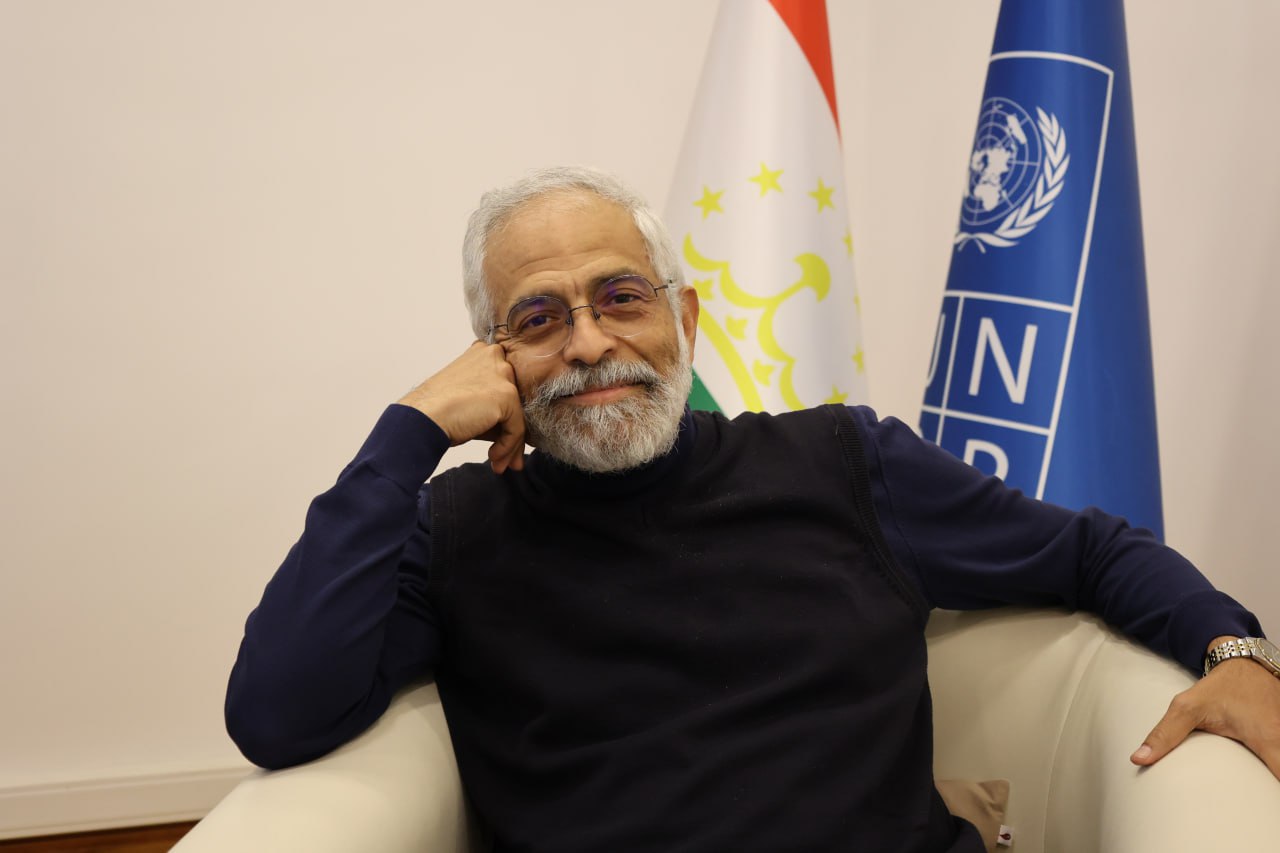
Lenni Montiel, UNDP Resident Representative in Tajikistan
The year 2023 marks the 30th anniversary of the United Nations Development Program's presence in the Republic of Tajikistan. President Emomali Rahmon, in his congratulatory message, commended UNDP for its valuable role over three decades, highlighting its significant contribution to the nation's progress. Throughout this period, Tajikistan has overcome numerous challenges on its journey toward development. The program has effectively supported the republic in its efforts towards sustainable development, establishing a robust foundation for mutual cooperation and actively engaging citizens in various projects and initiatives.
Lenni Montiel, Resident Representative of UNDP in Tajikistan, shares his insights into the history and currently ongoing projects shaping the country's development today.
-Mr. Montiel, this year the UN is celebrating thirty years of activity in Tajikistan. If we trace this rather long historical path, we can clearly see several stages in it. The first two of them are directly related to the historical path of the formation of independent Tajikistan - the civil war and the restoration of the republic after it. Could you tell us, please, what difficulties the first staff members of the United Nations Mission of Observers in Tajikistan (UNMOT) had to face and how were the problems solved?
-Wartime is a time of hard decisions for the people of Tajikistan and, accordingly, for the UN Mission of Observers. Therefore, at the very beginning, due to the internal situation, the priority for the republic was cooperation aimed at achieving peace and stability in the country.
In this regard, the first United Nations Mission in Tajikistan was a peacekeeping mission established by the UN Security Council to monitor the implementation of the ceasefire agreement, ensure the advancement of the peace process in the country, facilitate peacekeeping efforts, and provide urgent humanitarian assistance. Here I would like to emphasize that behind such general formulations as "monitoring the ceasefire agreement" or "promoting peace" lies not only a Herculean task but also a colossal risk to the life of every UN employee.
Unfortunately, during this period, the organization suffered an irreparable loss: 7 people - 3 military and 4 civilians. One of them was Dr. Yutaka Aquino, a renowned scholar from Japan working in Tajikistan as a political affairs officer and international relations expert under the auspices of the UNMOT peacekeeping operation, who was killed in various incidents. Their names are immortalized on a plaque that is installed in our office.
In 2018, Mr. Hajime Kitaoka, Ambassador Extraordinary and Plenipotentiary of Japan to the Republic of Tajikistan unveiled a memorial in the Nurobod district. This memorial with the names of four UNMOT mission members, including Dr. Yutaka Aquino, was installed by local authorities and residents on a road near Labijar village of Nurobod district, right at the site of the tragic incident.
Every year, together with the staff of the Embassy of Japan, we lay flowers in memory of the victims. This is the flip side of our work - while assisting in armed conflicts and being non-combatants, UN staff can pay for it with their lives.
-UNDP is one of the first UN agencies to play a vital role in stabilizing and rebuilding the country after the 1992-1997 civil war, and in helping Tajikistan move towards achieving the Sustainable Development Goals. What are the most successful projects implemented under the UNDP mission in Tajikistan during this period?
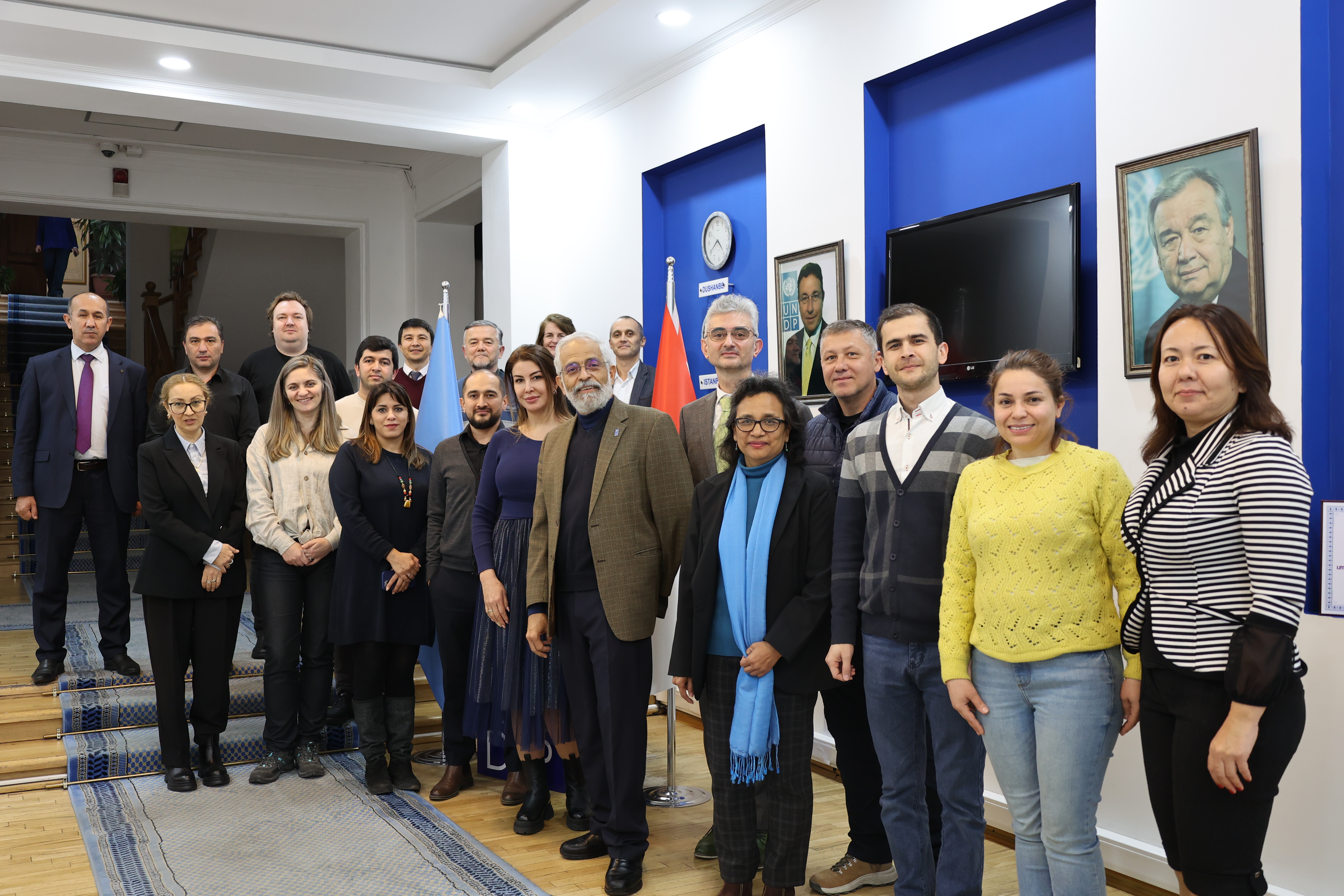
Lenni Montiel, UNDP Resident Representative in Tajikistan, along with Corneliu Eftodi, the UNDP Regional Advisor on Gender Equality, and Lazima Onta-Bhatta, UNDP Deputy Resident Representative, pictured with Tajikistan staff at the UNDP CO in Dushanbe
-First of all, I would like to note that historically UNDP has always played a primary role as the main agency entering into agreements with governments around the world on behalf of the UN. After the collapse of the USSR, UNDP took the lead role in interacting with post-Soviet countries.
In the specific case of Tajikistan, the agreement was formally established on October 1, 1993, cementing UNDP's commitment to joint initiatives with the government. Speaking of successful projects, I would like to mention the Community Development Programme, a project that worked for several years and consisted of reintegrating ex-combatants, demobilizing them, and later adapting them to peaceful life. As part of the program's work, large investments were made in social infrastructure in all regions of the country.
It is perhaps not only the most successful project of that period but also the most well-known and is often remembered in the country. A strategic framework for UNDP assistance was also formulated in 1997-1998 to harmonize humanitarian assistance and long-term development assistance. This later evolved into the first country program document for the period 1999-2000, followed by the rest of the documents in line with national priorities, the 2030 Agenda, and the UNDP Strategic Plan 2022-2025.
It would not be wrong to say that 1997 was a benchmark of life in the post-war environment when the Government of Tajikistan began to take intensive measures for macroeconomic stabilization, restructuring of financial systems, privatization, and inflation control. UNDP became a key partner in supporting the government in achieving these goals, working closely together to develop the country's first-ever National Development Strategy for 2007-2015.
We have worked and continue to work together to reduce poverty among the population, have provided and continue to provide support to the Women's Affairs Committee, and are helping to address environmental issues and the negative impact on the environment. There are a lot of realized projects. We can say that the fruitful cooperation between UNDP and Tajikistan is the result of setting the right goals.
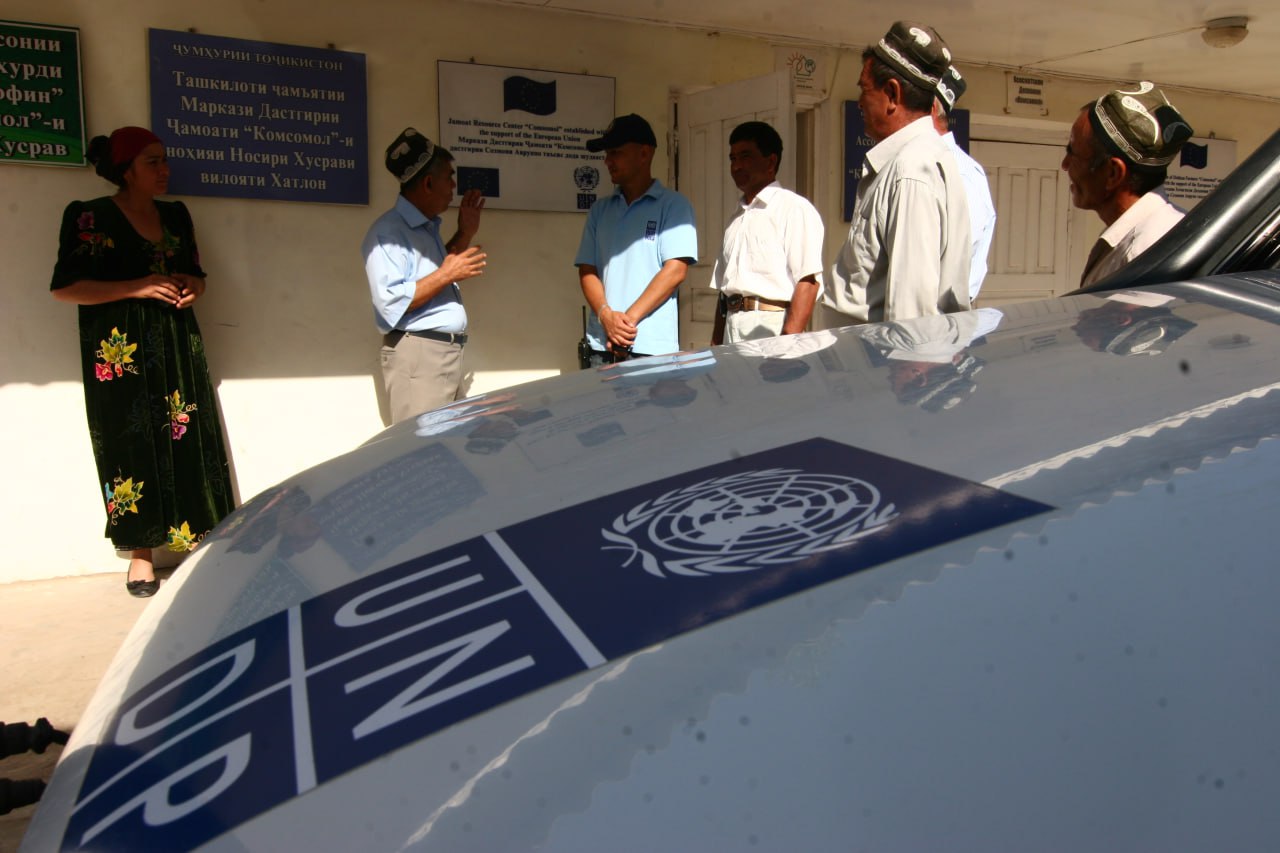
-Entering the new XXI century has brought new challenges and threats. What is characteristic of this period within the framework of the strategic program adopted in stages until 2015-2017? How did UNDP's priority areas change and what factors influenced these changes in focus, especially given the changing needs of Tajikistan?
-The 21st century for Tajikistan is about entering a peaceful life and rebuilding after the civil war. UNDP's contribution to this period is very significant. It includes trade issues, economic ties with other countries, the establishment of democratic institutions, in particular, the Ombudsman Institute, support for the activities of the Export Agency and the Investment Committee. For example, UNDP assisted in developing investment profiles for more than 100 local projects and drafted investment guidelines for 2 regions and 10 districts of the country to attract foreign direct investment and local investors.
Since about 2010, when the situation with the rehabilitation of previously destroyed infrastructure has significantly improved and is no longer on the agenda as it was before, the focus of the priority areas has changed, focusing on promoting sustainable economic development and reducing poverty and extreme poverty.
For example, under the Community Development Programme, UNDP worked with communities in rural Tajikistan to stimulate employment and income opportunities, improve the quality and accessibility of public services, and help integrate and mobilize community participation in decision-making processes by establishing Jamoat Resource Centers as a community-based organization. More than a hundred such centers have been established throughout Tajikistan, using small revolving funds to support their operation in remote rural communities.
Since 2015, we have helped create new jobs, more than 50% of which went to women. This has also included improving livelihoods through better access to public services, microfinance, business advice, skills, support for local businesses, and local value chain development.
Special mention should also be made of access to improved drinking water, energy, irrigation, health care, and secondary education. I would also like to mention the role of UNDP in creating and promoting the ecosystem for startups and innovative entrepreneurship in the country, with several platforms supported jointly by the private sector and government partners: StartUp Choikhona, Business Constructor, InnoResponse.
During the same period, the foundations were laid for the promotion of innovative solutions for the use of the digital economy and e-governance in economic spheres to ensure transparent and efficient public services for entrepreneurs and investors, expanding the market of digital jobs and digital literacy for youth and vulnerable groups. UNDP has also supported the Government of Tajikistan in developing a number of policy documents, plans, and regulatory frameworks in several economic and business areas.
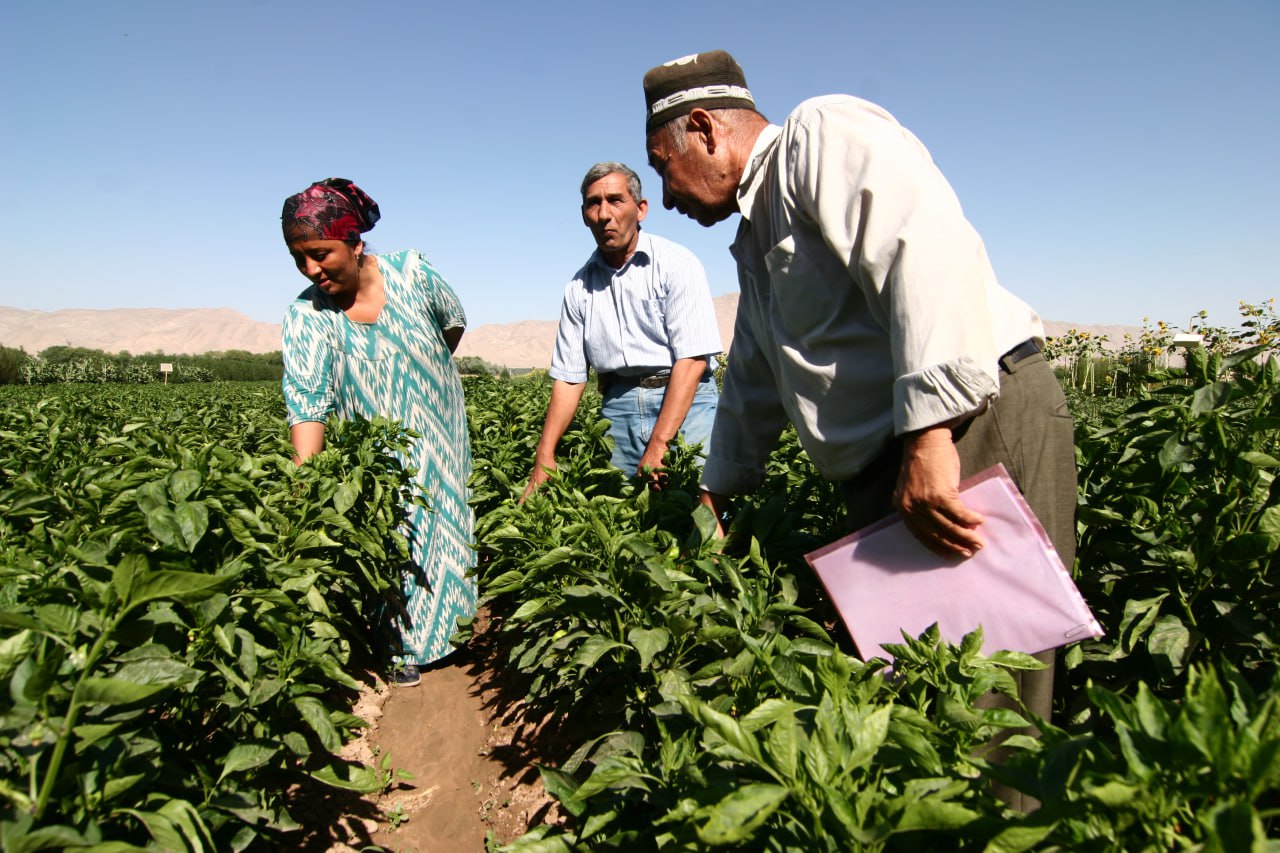
-Could you elaborate more on the mission of the organization?
-The main mission of UNDP is to assist the Government of Tajikistan in the further development of socio-economic conditions in the regions of the republic, supporting the initiatives of the state, with which we work on a permanent basis. I would like to note that we do not do anything on a whim. This is a very important point.
- UNDP pays special attention to the development of women's and youth rights and opportunities. And which of the already implemented projects have had an impact on the demographic factor and contributed to positive changes in society?
-I cannot say that our projects have a direct impact on the demographic factor. However if we consider them from the point of view of improving the quality of life of society and individual categories of its citizens, this influence is present and even becomes obvious.
Take, for example, projects in the area of health care, gender equality, access to education for girls and women in the country, and opportunities to start their own business - all of this has a positive impact on women's mental health and on increasing their role and importance in society and in the family. Youth in Tajikistan is a significant category - more than 60% of people under 35 years old, so here we focus on the problem of employment, and work on countering their extremism - it is currently an important moment in the republic so that young people do not fall under the negative influence of various extremist groups from other countries.
We pay attention to the development of various IT technologies and raise the awareness and literacy of young people in this area. This year, within the framework of the project "Supporting Women's Legal Education in Tajikistan", we actively worked with young people - girls and boys aged 18 to 25 years old, who are eager to promote human rights, to work on empowering women to receive legal education and to provide innovative ideas in this regard for young women, in order to bring positive changes in the life of society as a result.
We are also working to criminalize all forms of violence against women, including in the family because such behavior in a society where women tolerate various forms of violence is unacceptable and must be punished in accordance with the laws of the state. We are dialoguing on this together with the relevant structures of the country."
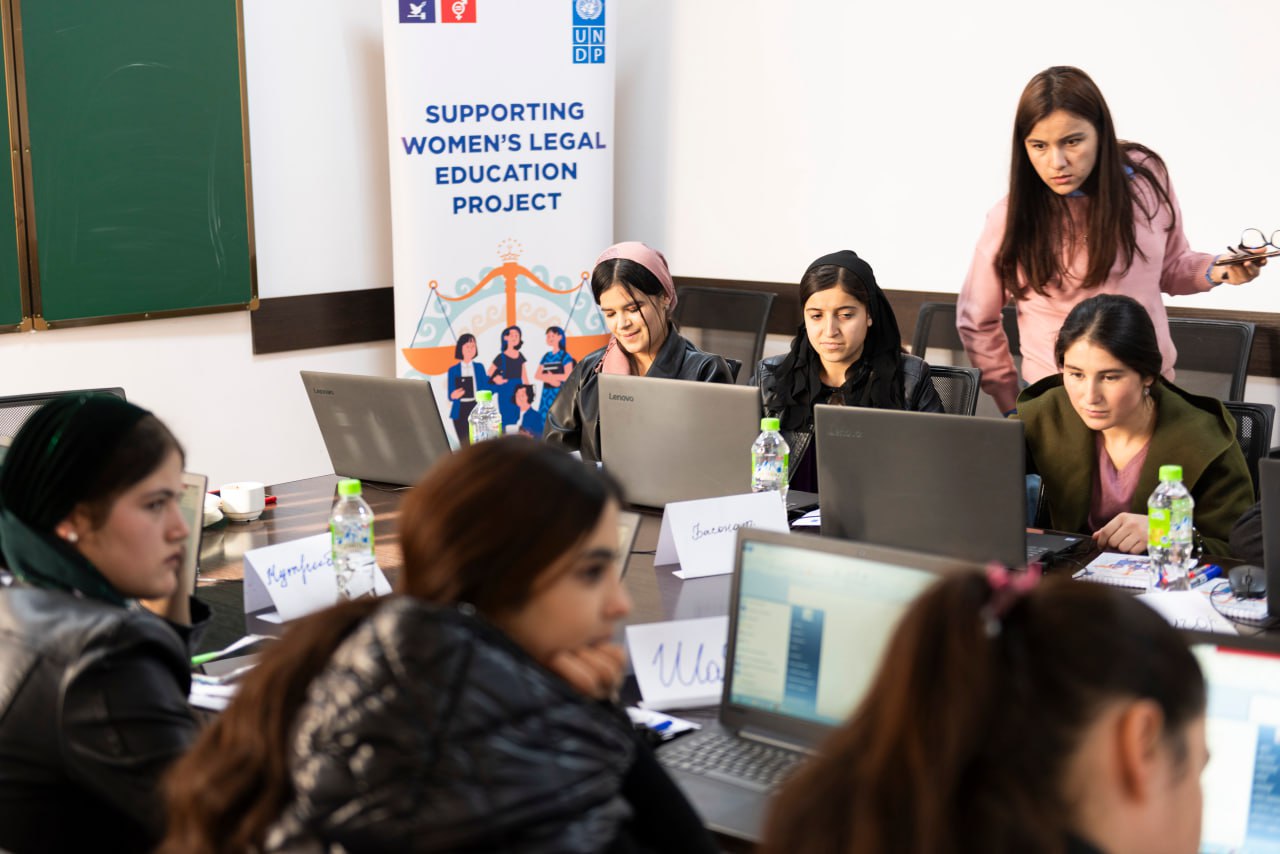
-Given UNDP's involvement in the health sector, could you outline the impact of its projects, especially in the context of recent advances in HIV/AIDS and tuberculosis treatment?
-Regarding the ongoing projects, I will say as an example of our work in the health sector: it is the fight against tuberculosis, and HIV/AIDS in partnership with the Ministry of Health of Tajikistan, aimed at ensuring universal access to HIV prevention services, reducing stigma and discrimination in society, delivery of antiretroviral therapy to the country, introduction of the latest recommended treatment regimens for drug-resistant tuberculosis, improving the quality of life of TB patients, including the penitentiary system.
We are very pleased with the results that Tajikistan has achieved. Thanks to years of work aimed at building infrastructure and capacity, as well as providing protective and preventive measures to stop transmission, malaria was completely eliminated in the country in 2015.
As I have already remarked, projects that support health and vulnerable populations are one of our long-term and ongoing initiatives.
For example, in 2021 alone, about 40,000 people were reached with HIV prevention services. Since 2006, when UNDP delivered life-saving HIV antiretroviral treatment to the first 50 patients in the country, access to treatment has not only significantly expanded in Tajikistan's major cities but has also reached remote areas, while remaining free of charge to date. The situation is similar for the Tuberculosis Control Program.
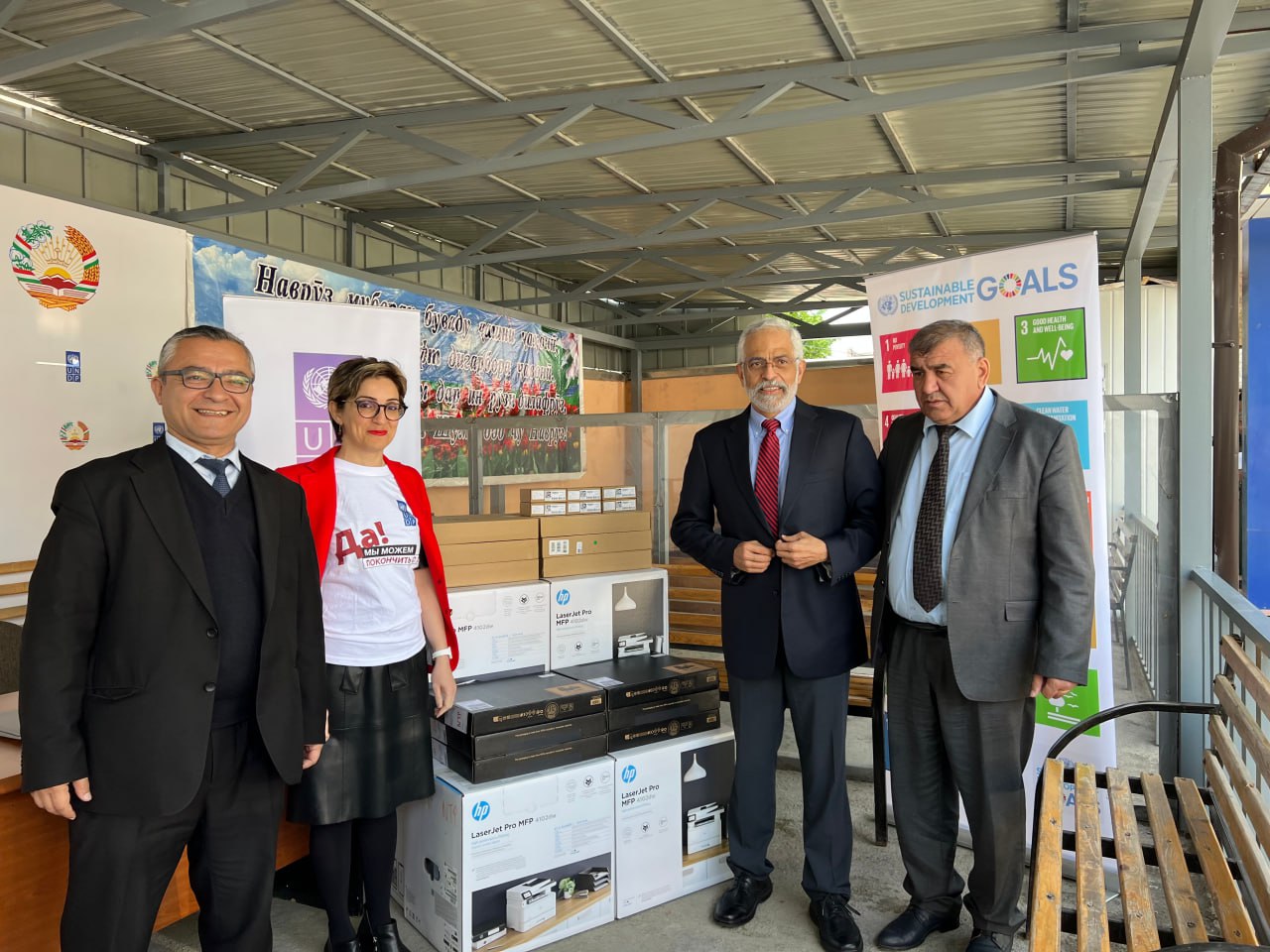
-UNDP supports the modernization of the civil registry system. How does this initiative fit with Tajikistan's broader development goals and what effect is expected?
-The civil registration system in Tajikistan today is conducted manually. And, of course, in the year 2023 of the 21st century, it is impossible to conduct such things on such a scale without the use of technical means. UNDP provides technical and methodological support in the provision of new equipment, digitalization of records, and training to improve the qualifications of civil registry workers, thus supporting the Ministry of Justice of Tajikistan in modernizing this area of activity.
There is a lot of work, and it is underway. The expected effect is a complete transition to modern electronic methods of civil status records management, including digitization of existing archives.
-Mr. Montiel, you arrived in the Republic at the end of 2021, amidst another challenging period for both the country and the world. What did you encounter upon arrival, and are there any differences between working in Tajikistan and other countries? Share your experiences and reveal your success as a manager.
I arrived in December 2021, amid the ongoing challenges of COVID-19, having come from New York where I was working. I faced limitations typical of the times. However, being assigned to work in Tajikistan, I decided there was no difference in where to be, opting to wait out the situation, stay at home, and work remotely. After receiving permission from the government, I arrived early.
The assistance and support I received during the move and initial adaptation were commendable. It's worth noting that I had previously lived and studied in the USSR, held a Soviet diploma in economics, and had experience working in Central Asia.
Regarding differences in work, there are always nuances, but you quickly adapt. Success as a manager is not an easy experience; it depends on one's preparedness for various situations, personal potential, and timing, as key decisions are made. It's essential to acknowledge that success isn't one-dimensional, and personal discipline, goals, and a reverence for knowledge play crucial roles.
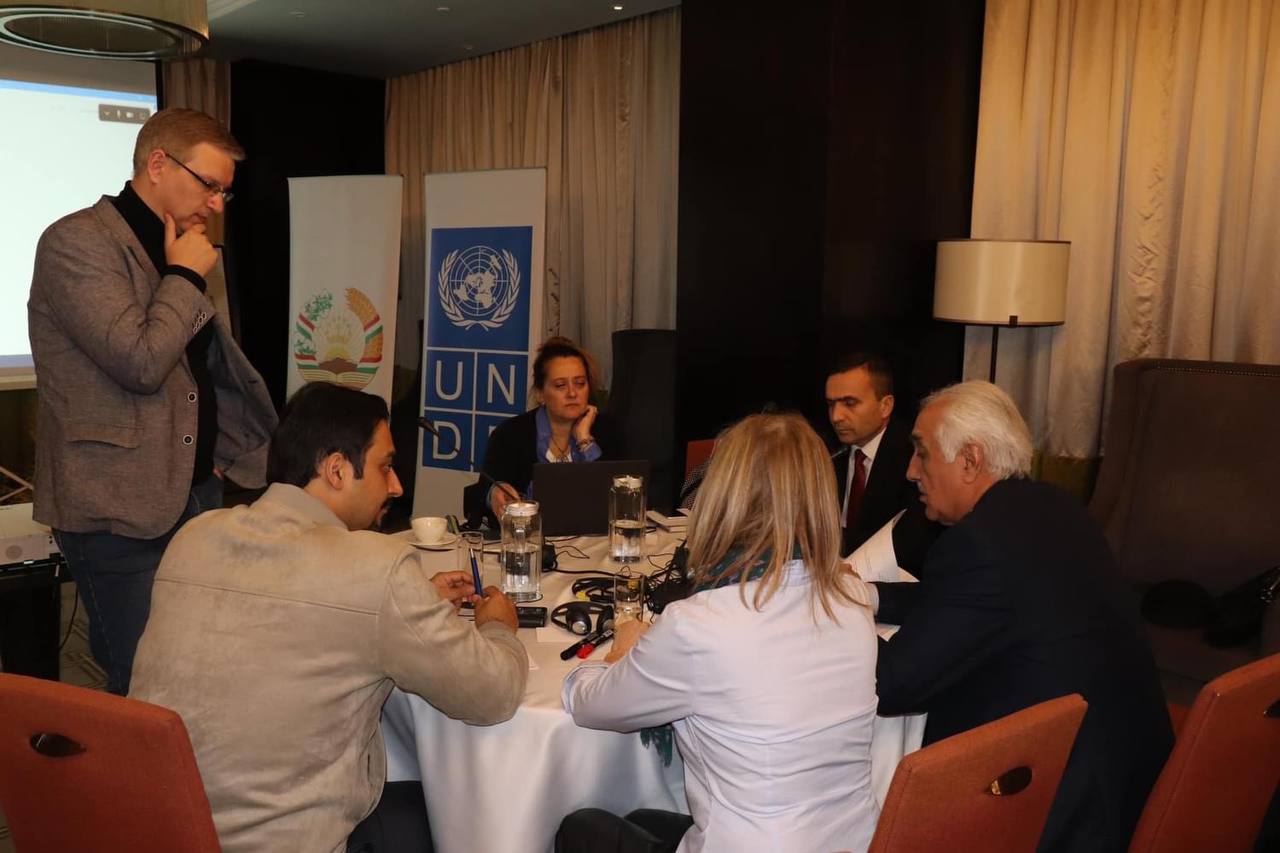
- UNDP's work today focuses on four main priority areas identified by the Government of Tajikistan for the period 2023-2026. These are inclusive economic development projects, climate change action, people-centered governance, rule of law, and women's empowerment. Tell us more about them. What is their importance?
- Key climate change initiatives include promoting low-carbon development, strengthening climate change adaptation and disaster risk reduction, improving energy efficiency, and supporting sustainable management of natural resources, especially water.
UNDP also emphasizes promoting inclusive governance, strengthening the rule of law, improving access to justice, and focusing on empowering women and youth and ensuring their participation in decision-making processes. This applies not only to UNDP's work in Tajikistan but also to the work of the UN in general.
These are quite global and long-term initiatives.
- At the regular meeting of the fifth session of the Parliament of Tajikistan, deputies approved the law "On Glacier Conservation". And on December 14, 2022, a special resolution of the UN General Assembly declared 2025 the "International Year of Glacier Conservation". Considering that 6% of the republic's mountainous terrain is covered with glaciers, what role does this UN initiative play for the country?
- It is no secret that Tajikistan is particularly vulnerable to climate change, and UNDP is actively supporting the government in developing robust and inclusive adaptation mechanisms.
Our multi-pronged approach includes support to climate change adaptation, disaster risk reduction, effective water management, and conservation of unique high mountain ecosystems, and is implemented in collaboration with national partners such as the Committee on Environmental Protection, the Ministry of Energy and Water Resources, the Agency for Hydrometeorology, the Agency for Land Reclamation and Irrigation, the National Center for Biodiversity and Biosafety and many others.
One example is our active support from our side to the process of implementing the National Climate Change Adaptation Plan, which integrates adaptation measures into national and sectoral policies. It is also worth noting our support to the government in reforming the water sector and developing the National Water Strategy of the Republic of Tajikistan, given the country's dependence on glacier-related water resources.
The plan also focuses on agriculture, land use, and food security, and addresses urgent challenges by proposing measures for economic growth and rural development.
- As the year draws to a close, I can't help but ask you about UNDP's future projects in Tajikistan and, of course, my wishes for you, the office staff, and all the people of the republic.

- UNDP has several ambitious projects and initiatives planned for Tajikistan in the coming years. These include the projects that I have already outlined, aimed at supporting small and medium-sized businesses, stimulating innovation and entrepreneurship, further strengthening democratic institutions, increasing civic engagement, and ensuring respect for and promotion of human rights at all levels.
We also support the Government of Tajikistan in implementing the National Strategy for the Protection of Human Rights until 2038, the Law of the RT "On the Prevention of Domestic Violence" - respectively, initiatives aimed at increasing gender equality and preventing violence against women and girls.
There are many important and interesting things. Well, I want to wish all of us one thing - it is health! After all, when a person is healthy, he can do many things. Health in my understanding is also synonymous with happiness. So be healthy and be happy!
-Thank you!
Media inquiries: Nigora Fazliddin, Communications Analyst, UNDP Tajikistan, nigorai.fazliddin@undp.org

 Locations
Locations



